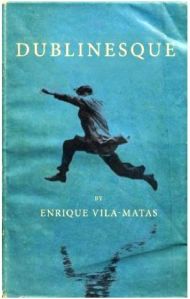
Silent House by Orhan Pamuk
Turkish Fiction
Original title Sessiz Ev
Translator Robert Finn
Source – Personnel copy
Well I ve read four Pamuk Novels before this one and as is the case in the world of translation ,I’ve read them out-of-order of publications in Turkish I start with my name is read followed by Snow then Back to an earlier book Whit Castle ,then his latest the Museum of Innocence.Now this has arrived in English and was the second novel written by Orhan Pamuk , but is the ninth to be published in English and the first to be translated by Robert Finn .I have previously mention a lot about Pamuk in the other books I reviewed ,he is Turkeys best known writer and has won the Nobel prize for literature .This book is a double hit for me as it is the fourth from the Man Asian Short-list I ‘ve read but also the tenth book I ve reviewed from this year’s independent foreign fiction prize .
But tomorrow they’ll come and I’ll think again . Hello ,hello how are you ,they’ll kiss my hand ,many happy returns ,how are you ,Grandmother ,how are you ,how are you , Grandmother ? I’ll take a look at them .Don’t all talk at once ,come here let me have a look at you ,come close ,tell me what you have been doing ? I know I’ll be asking to be fooled and I’ll listen blankly to a few words of description!
Fatima the night before the hoards descend on here
So Silent House well the title is a bit of joke because this is anything but a book about silence or a silent house .The book is set in the early eighties a turbulent time in Turkey and we are with Fatima and yes at start as she await the hoards to descend (her extended family of grandchildren to arrive for the summer ).The family arrive one by one and each member of the family is like a jigsaw piece as they arrive we learn a bit more about the family ,but also about turkey as a whole as each one of her grandchildren represent a different face of turkey Faruk is the idealist a troubled historian ,the sister Nilgun that is part of a new elite in turkey with money ,a drop-out ,a right-winger ,As they arrive the hose becomes very vocal and the house becomes a micro version of The turkey of the time .The book is set in 1980 just a coup is in the offering .
It’s well after midnight ,but I can still hear them moving about what could they be doing down there ,why don’t they go to sleep and leave me the silent night ? I get out of bed ,walk over to the window ,and look down :Recap’s ;light is still on ,lighting up the garden:what are you doing there ,dwarf ? It’s frighting ! he’s so sneaky ,that one every once in a while I catch him giving me a look ,and I realize he notices everything about me , watching the smallest gestures ,
The house is loud and what does Recap the dwarf know ?
Where does this lie in the body of Pamuk’s work ,well it is very different as one would imagine with a second novel .The book is a book of voices but also a clever way of discussing the turkey of the time without Pamuk using his own voice as he uses the myriad of character in this book to show the troubles with in his own country ,but also to show how these troubles affect people on a personal every day level .The children also in there own ways show how politics effect people in different way , burying your head in the bottle ,being to rich too notice troubles ,joining a gang of fascists and following the latest causes .Then there is Fatima her self the sort of women that runs a large family in her ninties but has the respect of all and she also has a dwarf servant Recap .I did enjoy this more than I have recent Pamuk novels .Now the question is would this have been better published at the time ,part of me thinks yes then another part thinks it is still happening turkey is still a country with many faces and problems of its own and the book still shows how far they have come and how far they have to go .
Have you read this book ?
Do you have a favourite Orhan Pamuk ? mine is my name is red















